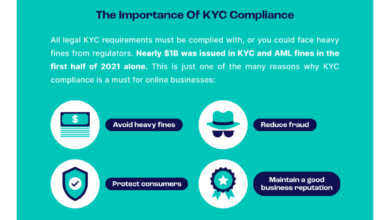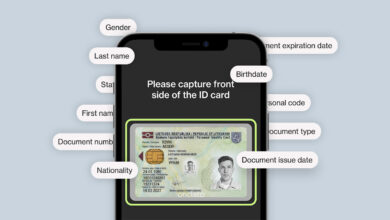A12 Amazing Facts About How to Hire a Hacker (What hackers can do ethically)

While most people think of hacking as a criminal activity, ethical hacking is when businesses engage in highly skilled cybersecurity experts with the sole intention of compromising their computer networks, systems, and web applications to uncover vulnerabilities.
Both ethical and criminal cybersecurity experts use similar tactics to infiltrate systems and access data on corporate networks. The distinction is that one wants to profit from weaknesses and vulnerabilities. The other tries to rectify them for their client’s advantage.
In this guide, we’ll explain what makes a hacker “ethical” from its criminal counter and the amazing things they do for their clients.
Also check numlookup
What does it mean to hack ethically?
A professional offensive security researcher, consultant, or employee who practices the dark side of cyber hacking is known as an ethical hacker. Former IBM executive John Patrick created the term “ethical hacking” in the 1990s to distinguish constructive hackers from the world of cybercriminals.
Ethical hackers, sometimes known as “white hats,” are security specialists who conduct these evaluations. They help an organization’s security posture by being vigilant. People can easily access their help through numerous sites on the web, like Trusted hackers where you can find “hire a hacker service” with the aim to aid you in hacking ethically.
How does ethical hacking work exactly?
Penetration testing is a type of ethical hacking that involves breaking into operating systems, front-end/back-end servers, APIs, application systems, and other systems. To verify an organization’s cybersecurity readiness, ethical hackers conduct various penetration tests, including external testing, internal testing, and web application testing.
Ethical and unethical hacking
Before we get started with the tips, the first thing to understand is the difference between ethical and unethical hacking.
Ethical hackers:
An ethical hacker’s goal is to prevent a black hat hacker from stealing data, money, or gaining access to restricted networks. In addition, ethical hackers learn how to spot potential network security risks and vulnerabilities. These types of hackers are the ones that you’ll be hiring to do your hacking.
Unethical hackers:
The goal of black hat hackers or unethical hackers, to mention a few things, is to steal important information, money, free software, get access to restricted networks. Phreaker cracker, carder, and script kiddies are all terms used to describe different types of unethical hackers. Each with the criminal intent and goal of stealing information or money. These types of hackers you’ll always avoid.
How to hire a hacker?
Because supplies are limited, hiring a professional, ethical hacker on your own is difficult. You must also ensure that they are trustworthy. After all, hackers are trained in the dark arts, so you need to know that not only are they skilled, but that they won’t utilize what they uncover on your website for evil purposes. At the very least, they must undergo a thorough background check, just like any other security employee.
Hackers who are ethical are a rare breed. They have the same abilities as bad guys, but they choose to put those abilities to good use. And they’re up against a swarm of potential troublemakers.
12 amazing facts about what hackers can do ethically?
Following are 12 of many facts about how ethical hackers?
- Locating vulnerabilities: Determining whether security measures are adequate, which ones need to be upgraded, and which ones have exploitable weaknesses.
- Demonstrating cybercriminal techniques: Showing executives how harmful parties might infiltrate their systems using hacking tactics.
- Preparing for a cyberattack: Anticipating cyberattacks and strengthening the cybersecurity infrastructure of the company.
- Figuring out evasions: Identifying the evasive maneuvers for how threat actors get beyond firewalls, honeypots, and intrusion detection systems.
- Penetration testing: Testing for penetration. Pen testing differs from ethical hacking, and that is because it’s planned and more specifically focused on specific aspects of cybersecurity.
- Reviewing patch installations: Reviewing patch installation procedures to ensure that no new vulnerabilities are introduced due to software updates.
- Expose insider threats: They make insider threats public and exposed.
- Red/blue team exercises: Participate in red team/blue team exercises and assist with their organization.
- Port Scanning Using port scanning tools like Nmap, Nessus, or Wireshark to scan a company’s systems, detect open ports, examine the vulnerabilities of each port, and take remedial action A port is a communication endpoint for a process or service. Computers can distinguish between various types of traffic thanks to ports.
- Undercover social engineering exploits: Carry out a wide range of undercover social engineering exploits. They can assess staff knowledge, awareness, and readiness in addition to cybersecurity systems and regulations.
- Examine test patch systems: Examine and test patch installation procedures to ensure that your personnel are following best practices.
- Informing the crew about cyber-crime techniques: Educate the security crew on the latest cyber-crime techniques.
An increasing threat: Hire a hacker service for data protection
The requirement for competent IT security professionals to fight back and design powerful defensive methods is on the rise as hackers continue to put more pressure on the networks and systems they attack.
Having a little background check about ethical hacking and how to contact a trustworthy ethical hacker is important. Various sites help you get in contact with ethical hackers and related knowledge about what they do. Sites like Cybrary or Thehackernews keep you up to date about all the latest cyber-attacks and news related to ethical hacking.
Conclusion
Like how every one thing has its positive counterpart, even in the context of computerized systems, the term “hacker” has many diverse meanings. It should not be confused with the identity of a cybercriminal. In its widespread acceptability, the phrase “ethical hacker” appears to be deceptive and misrepresent the term “ethical.” Greatly because of their evil opposites.
Now that you know about hiring hackers that work ethically and the many facts about what they can do, you can use them to your advantage.





